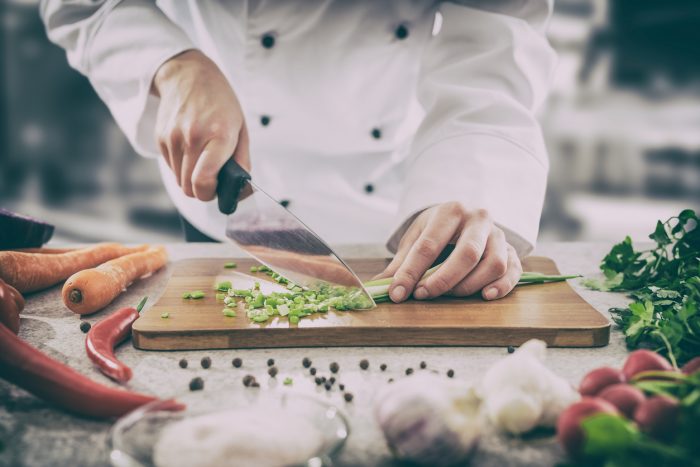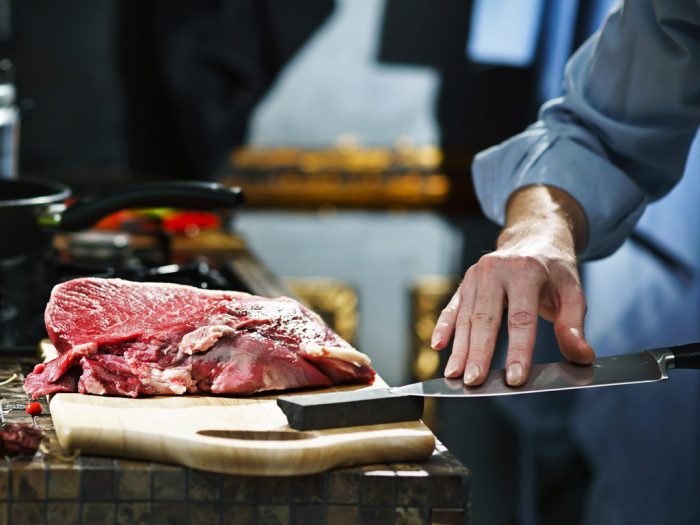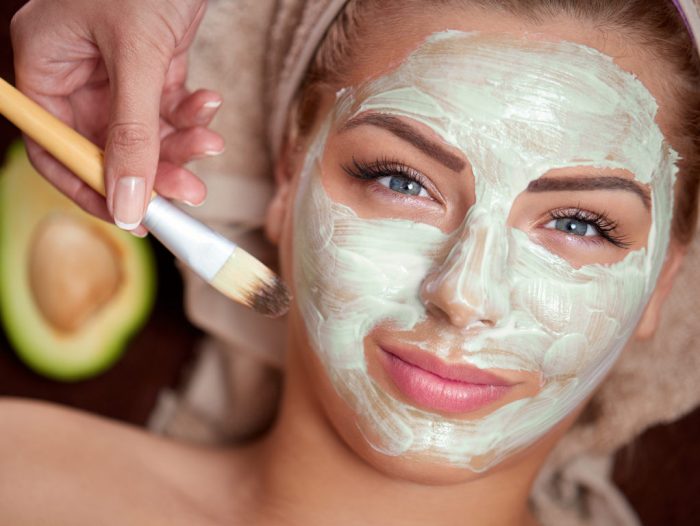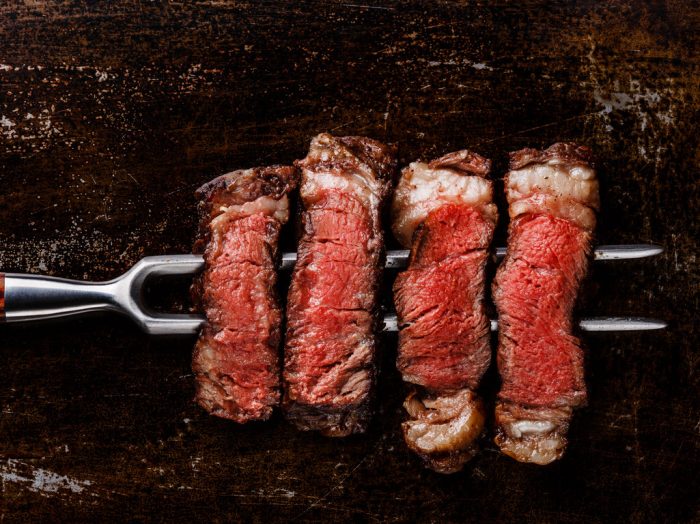There are very few things you can do in your kitchen without a knife. It’s an essential item for prepping your meals and getting your ingredients in the shape you want for cooking. Not to mention they’re very useful when you want to enjoy your dish. But how much do you know about knife care?
I have a confession to make: for most of my life, I didn’t sharpen my knives. I guess I have moved around so much that I always seemed to buy new knives, which is not the cheapest of habits. At all. Some knives I’ve had in the past got rusty or broke. And I thought that happened because they weren’t very good. But it might have been because I wasn’t paying attention to proper knife care. Now that I feel like I am settling down somewhere, finally, I’m thinking that I do want to pay attention.
I want to run a tight kitchen in my house and be the best host possible when people are coming over. I am working on a cooking website, after all! So I set out to find awesome tips about knife care and learned so many things.
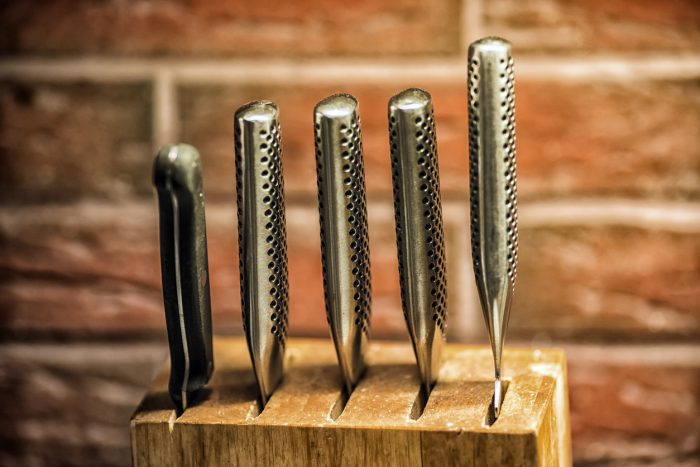
7 tips for excellent knife care
1. All-purpose knives aren’t all-purpose
Even if your knife is supposed to be all-purpose, don’t go trying to open a can with it! And there are some tough things to use a knife on, like frozen items or meat with bone. If you want to cut through those, make sure you’re using a knife that’s built to do that. And not your trusty chef’s knife. Knives aren’t very flexible and might break if you try to make them do something they’re not built to. After all, I am the person that gut a giant cut in my palm and a broken knife while trying to open up a can. I’ve learned my lesson and bought a can opener.
2. Don’t skimp on the cutting board
Knife, meet cutting board! Those two will probably live many years together, so you have to make sure they’re compatible, ok? Never, under any circumstances, choose a glass cutting board! It will dull the blade of the knife in an instant. Plastic isn’t all that great either. You can choose between rubber, which absorbs shock, and wood, which seems to be harder to maintain. In the cooking world, though, chefs seem to be split like Montagues and Capulets, between those two. I like the wood one. You pick yourself!
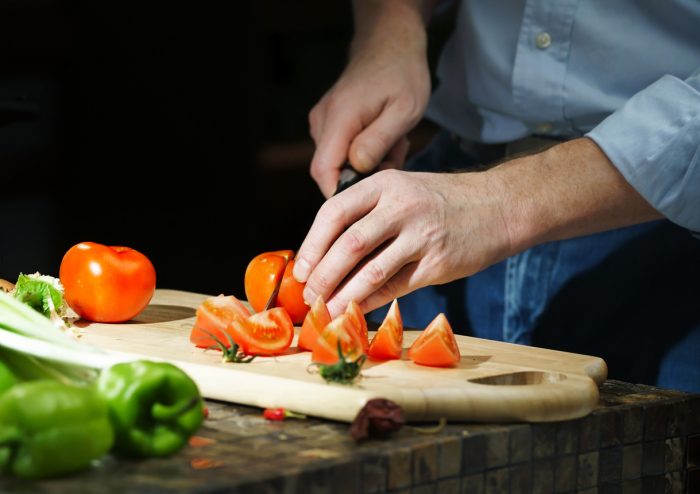
3. Don’t put them in the dishwasher
I’m afraid you’re going to have to wash the knives by hand. And that’s because knives have a protective coating which is destroyed by dishwashing. The process also dulls the edge and can make the knife rust from the inside. Which is a hazard, because it could break in your hand while you’re using it!
4. Dry the knife
You should always clean the knife right away after use. Just use soap and water, nothing fancy. Then the important step is to dry it completely, or else it might stain or even rust. This has happened to me in the past a few times and I shrugged it off. Not anymore!
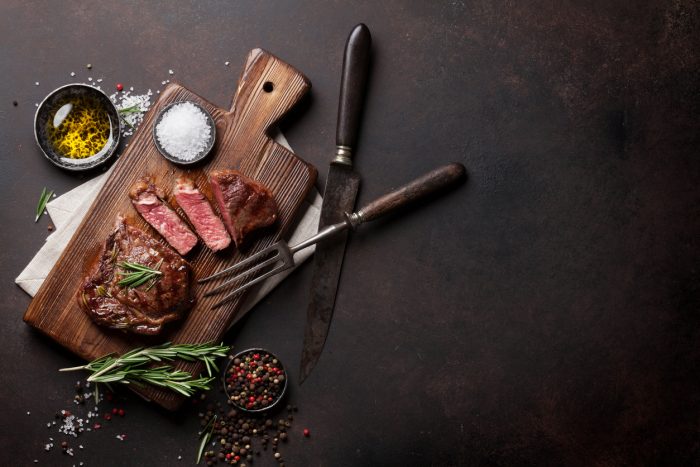
5. Store the knives gently
The best place to keep your knives is in a wooden block or a magnetic strip. But there are a few caveats. Be gentle when you store the knife because, for one, you could dull the blade in the wooden block. And another problem is just throwing it in the block and chipping or bending the tip of the knife because of the impact.
Be gentle with a magnetic strip too. If the strip is strong, then it might warp the blade or even break it at some point. So don’t pull it too hard or slap it on with force. Gentleness is key when you do this.
6. Sharpen with a whetstone
If you feel that the blade is dulling, sharpen it at home with a whetstone. But every year or so take it to be professionally sharpened. Don’t use honing steel, because it can scratch the knife or dull it even worse. How do you know when the knife needs to be sharpened? Test it on a piece of paper. Put the paper on your cutting board and press the knife into it. If the cut is clean, you don’t need to sharpen the knife just yet.
7. Improve your cutting technique
Having a correct technique is also very important when it comes to knife care. As long as you use your knife with the movements you’re supposed to have, your knife will be safer and healthier. Also, there’s one thing you need to give up on, something that I’ve always enjoyed: don’t use your knife to transfer chopped ingredients from the cutting board to the pot or a bowl. That running of the blade across the cutting board tends to dull the edge faster.
